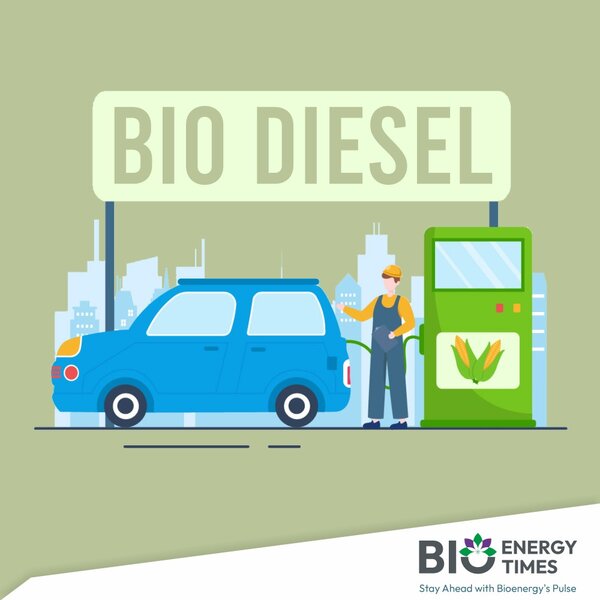Brazilian mining major Vale has launched new field tests using higher biodiesel blends in its haul truck fleet, marking another step in the company’s efforts to cut fossil fuel use across its operations. The miner said trials with B30 and B50 biodiesel have begun, with the potential to reduce emissions by up to 35% compared to the diesel currently used in Brazil. A new testing phase for an electric haul truck, first trialled in 2022, has also commenced, reports International Mining.
Vale aims to increase the biodiesel blend for its haul trucks from the legally mandated 15% to between 30% and 50%. Laboratory tests conducted since 2023 indicated strong technical potential, prompting the company to begin field trials in November 2025 at the Mariana Complex in Minas Gerais using 150-tonne haul trucks. Vale released an image of a Caterpillar 785 truck prepared to operate on B30 biodiesel.
The trials will run for at least six months, during which Vale will assess truck performance and determine whether adjustments are needed to either engines or fuel formulations to ensure higher blends can be used without compromising operational efficiency.
Carlos Medeiros, Executive Vice President of Operations, said the company’s decarbonisation strategy integrates multiple technologies. “To mitigate fossil diesel consumption in the haul truck fleet, investments in biofuels and ethanol are being prioritised, in addition to the adoption of electrification systems in specific applications, where technical and economic feasibility analysis demonstrates greater operational efficiency,” he said. “Biodiesel, after validation of performance parameters, has the potential to promote significant environmental gains and serve as a reference for large-scale adoption in the sector.”
Vale has also signed agreements with haul truck manufacturers Caterpillar and Komatsu to develop dual-fuel engines capable of operating on ethanol and diesel. Both ethanol and biodiesel—produced largely from soybean oil—are areas where Brazil has strong competitive advantages.
In parallel, Vale has begun a new test phase for XCMG’s 72-tonne battery-powered electric haul truck, the XDR80TE. The vehicle, which was initially evaluated in 2022, has undergone manufacturer upgrades based on earlier test results and returned to the company in November 2025. It will be tested for at least six months at the Capão Xavier mine in Minas Gerais to evaluate performance and operational efficiency. Electric trucks offer zero CO₂ emissions and lower noise levels.
“In the technological development process, it is important to test, learn lessons, make adjustments, and test again until we achieve the ideal result. We see electrification as a solution with the potential to reduce carbon emissions in the long term,” said João Turchetti, Director of Decarbonisation at Vale.
Vale has committed to reducing its Scope 1 and 2 emissions by 33% by 2030 and achieving net-zero emissions by 2050. By 2024, the company had invested R$ 1.4 billion toward meeting its climate goals.














